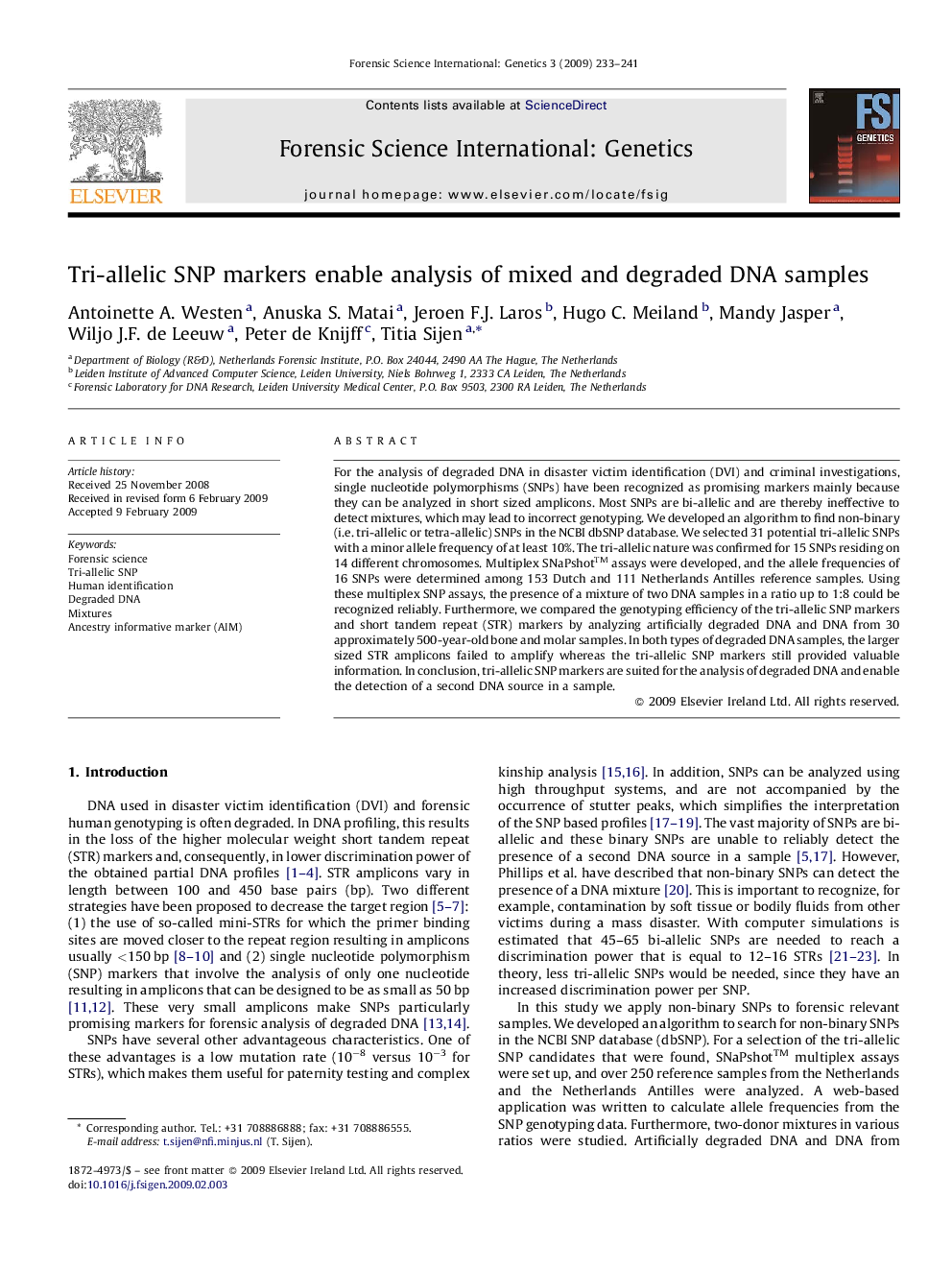| کد مقاله | کد نشریه | سال انتشار | مقاله انگلیسی | نسخه تمام متن |
|---|---|---|---|---|
| 99153 | 160924 | 2009 | 9 صفحه PDF | دانلود رایگان |

For the analysis of degraded DNA in disaster victim identification (DVI) and criminal investigations, single nucleotide polymorphisms (SNPs) have been recognized as promising markers mainly because they can be analyzed in short sized amplicons. Most SNPs are bi-allelic and are thereby ineffective to detect mixtures, which may lead to incorrect genotyping. We developed an algorithm to find non-binary (i.e. tri-allelic or tetra-allelic) SNPs in the NCBI dbSNP database. We selected 31 potential tri-allelic SNPs with a minor allele frequency of at least 10%. The tri-allelic nature was confirmed for 15 SNPs residing on 14 different chromosomes. Multiplex SNaPshot™ assays were developed, and the allele frequencies of 16 SNPs were determined among 153 Dutch and 111 Netherlands Antilles reference samples. Using these multiplex SNP assays, the presence of a mixture of two DNA samples in a ratio up to 1:8 could be recognized reliably. Furthermore, we compared the genotyping efficiency of the tri-allelic SNP markers and short tandem repeat (STR) markers by analyzing artificially degraded DNA and DNA from 30 approximately 500-year-old bone and molar samples. In both types of degraded DNA samples, the larger sized STR amplicons failed to amplify whereas the tri-allelic SNP markers still provided valuable information. In conclusion, tri-allelic SNP markers are suited for the analysis of degraded DNA and enable the detection of a second DNA source in a sample.
Journal: Forensic Science International: Genetics - Volume 3, Issue 4, September 2009, Pages 233–241